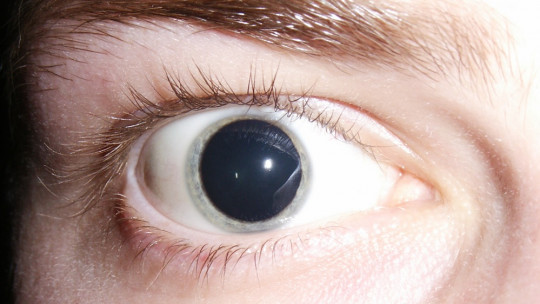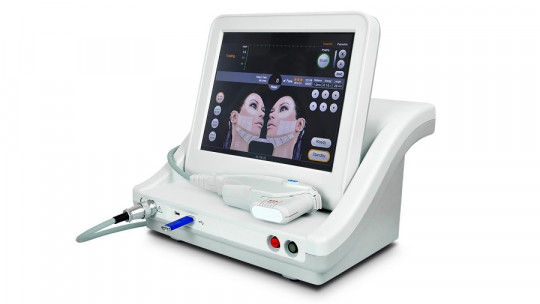
Normally surgeries are surgical processes used to correct a physical alteration of the subject’s body.
However, there are other types of surgeries in which the effect of suggestion is much more important than the operation itself. These are placebo surgeries Let’s learn more about what these approaches consist of, what their usefulness is and their level of effectiveness for certain types of patients.
What are placebo surgeries?
Placebo surgeries are a type of surgical intervention in which the operation is completely simulated, except for those elements essential for the patient to believe that it is real, such as the generation of a scar, sedation or all the environmental elements of an operating room (gowns, protective material, etc.). The goal is for the person to believe that he has undergone a real operation.
But why might we want to simulate a surgical procedure instead of performing a real one? This is where the usefulness of placebo surgeries comes into play. The placebo effect, in general, consists of an improvement in the patient’s physical or mental state after the administration of a harmless element that he believes is actually beneficial for her health.
Therefore, what would be generating the improvement would not be, in this case, placebo surgeries, but the expectations that the person themselves would have of experiencing a positive effect after said intervention In other words, what improves the patient’s health is the suggestion generated by believing that he is being the subject of an operation designed to cause a change for the better. He improves because he believes he will improve.
Do placebo surgeries work?
The first problem we encounter when we talk about placebo surgeries is that it is a phenomenon that has not yet been studied in all its depth. The reasons are obvious, and that is that As a matter of ethics, it is not always possible to perform a fictitious treatment on a person, depriving them of the real intervention, to verify its usefulness
Even so, some tests have been carried out that allow us to draw some conclusions, always limited to the specific ailments present in said studies, so they cannot be safely extrapolated to other types of diseases. One of the most surprising cases took place in 2016, when A team from the University of Florida designed an intervention to treat a patient suffering from Parkinson’s
This operation involved the implantation of a small cable whose objective was to transmit electrical impulses to a specific area of the brain. The point is that the doctors in charge of the case knew perfectly well that the application of this cable was irrelevant in physical terms to treat Parkinson’s disease, but they made the patient believe otherwise.
This placebo surgery was a complete success and the person quickly noticed the improvement, to the point of showing a visible reduction in your body tremors, caused by the disease How was it possible? Due to the powerful suggestion to which he was subjected. He was so convinced that they were going to make him better with the operation that in fact they did.
Likewise, the effectiveness of placebo surgeries has been observed in patients with heart ailments. In this case the study was carried out at Imperial College London. The researchers found a group of two hundred patients suffering from myocardial ischemia. Half of them underwent the usual surgical intervention in these cases, while the other half simply pretended to perform it.
The results were surprising: Both patients in the control and experimental groups experienced similar improvement Is the conclusion, therefore, that suggestion is as powerful as a real surgical operation? Not quite. The underlying issue is that the doctors already suspected that this particular intervention was not as physically effective as initially believed.
What they were actually demonstrating is that it was not the surgical operation that caused the improvement, but the expectations that the patients had about said intervention. Therefore, when applying the placebo surgeries, the positive effect was the same as in the other cases, demonstrating that it was not necessary to perform a real physical intervention to achieve the improvement they were looking for for the patient.
More studies on the effectiveness of these operations
But these are not the only studies that have been carried out in this regard to verify the effectiveness of placebo surgeries. Another example is the one that Scientific American magazine published in 2013. This article involved a meta-analysis of 79 other studies that studied the effectiveness of different placebo techniques to relieve headaches in patients.
The conclusions were equally clear. The administration of harmless pills reduced pain in 22% of cases Placebo needling (acupuncture) worked for 38% of patients. But the most powerful solution of all those that relied on suggestion was the one that involved placebo surgery, that is, a false surgical intervention. 58%, more than half, saw their constant migraines disappear after the operation.
Shortly after, doctors from the English universities of Cambridge and Oxford conducted a new meta-analysis, in this case on 53 studies of placebo surgeries to treat knee ailments. Almost three out of four patients experienced some improvement when undergoing placebo surgery and half of the total patients had just as positive feelings as those who actually underwent surgery to physically repair their alteration.
What conclusions do the experts draw? That there are certain interventions that, in light of the facts, are not as effective as they were believed and therefore are shown to be unnecessary, due to the physical risk, even if minimal, that any operation may entail. Are They could be replaced by placebo surgeries, since the suggestion about their improvement is what generates it, in a kind of self-fulfilling prophecy
However, another question arises, this time of an ethical nature. Is it right for a doctor to deceive a patient about the treatment he is going to receive, relying solely on the effects of suggestion? This is a debate that escapes the data, but remains open for the reader’s reflection.
Beyond placebo surgeries: the fraud of psychic surgery
Although all the examples we have seen so far belong to studies carried out by prestigious universities, where medical professionals fight to achieve the best results for the health of patients, there are other techniques used by people of dubious reputation who, although they share traits with the Placebo surgeries are not the same. This is what is known as psychic surgery.
This type of technique emerged in the 1950s in the Philippines, although it later became popular in Brazil and was even practiced in the United States, always by gurus who had little in the way of doctors. These healers claimed to be able to perform psychic surgeries, operations where they did not use scalpels, but rather their own bare hands, and apparently removed malignant elements such as waste and even tumors from the body.
The method, obviously fraudulent, became very popular as a result of television exposures and especially through the experience of the American comedian, Andy Kauffman, suffering from lung cancer, who believed he improved after one of these experiences, but died shortly after, because his state of His illness was devastating and suggestion had no power to change in that case.
In any case, It must be made clear that psychic surgeries and placebo surgeries are not the same In the first case there is clear evidence of fraud and deception with the objective of the mere benefit of the shaman, who is nothing other than a fraudster. On the contrary, placebo surgery is a technique that uses the psychological power of suggestion to achieve physical improvement in the patient.
In both cases lies are used, it is true. However, there is a clear difference in the intentionality of the person who exercises the technique and the person who will receive the benefit of it. Therefore we should not apply the same category, because one is a pseudotherapy and the other is a technique that can be tremendously useful in improving the quality of life of some people who are suffering without their pain being used to achieve an economic benefit in return.








